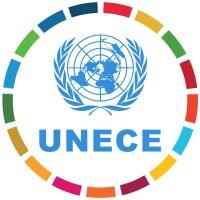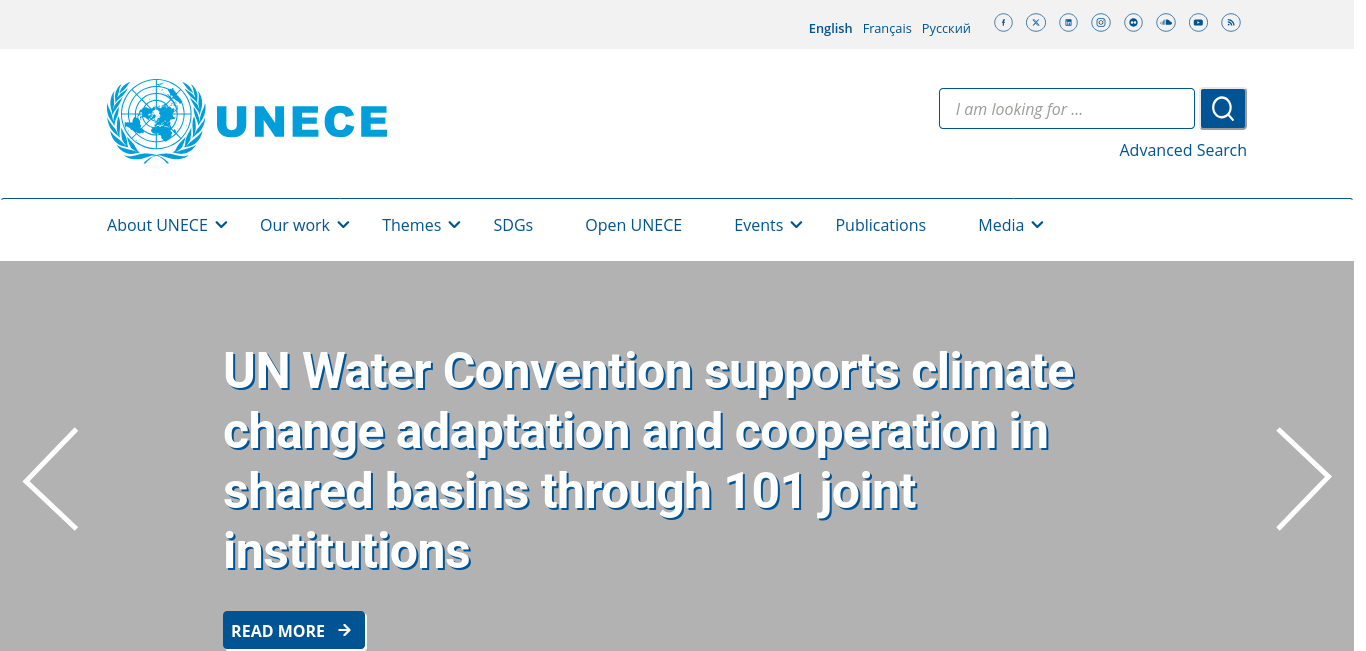United Nations Economic Commission for Europe
Created in 1947

- BETA

Up & running (A)
Existing signals show a regular activity Social networks
8,686 258 59,605 3,269 36,836 3,964Activities
Entity types
Location
8, Av. de la Paix 14, 1211 Genf, Switzerland
Genf
Switzerland
Employees
Scale: 201-500
Estimated: 470
Engaged corporates
41
17 16Added in Motherbase
4 years, 11 months ago
Value proposition
UNECE fosters sustainable development by translating #GlobalGoals into norms and conventions that impact people’s lives
The United Nations Economic Commission for Europe (UNECE) was set up in 1947 by ECOSOC. It is one of five regional commissions of the United Nations. The others are the Economic and Social Commission for Asia and the Pacific (ESCAP), the Economic Commission for Latin America and the Caribbean (ECLAC), the Economic Commission for Africa (ECA) and the Economic and Social Commission for Western Asia (ESCWA).
Its major aim is to promote pan-European economic integration. To do so, UNECE brings together 56 countries located in the European Union, non-EU Western and Eastern Europe, South-East Europe and Commonwealth of Independent States (CIS) and North America. All these countries dialogue and cooperate under the aegis of the UNECE on economic and sectoral issues.
To this end, it provides analysis, policy advice and assistance to governments, it gives focus to the United Nations global mandates in the economic field, in cooperation with other global players and key stakeholders, notably the business community.
The UNECE also sets out norms, standards and conventions to facilitate international cooperation within and outside the region.
The area of expertise of the UNECE covers such sectors as: economic cooperation and integration, energy, environment, housing and land management, gender, population, statistics, timber, trade, and transport. UNECE has 56 member States. However, all interested UN member States may participate in its work. Over 70 international professional organizations and other non-governmental organizations take part in UNECE activities.
Homepage | UNECE
https://unece.org/

